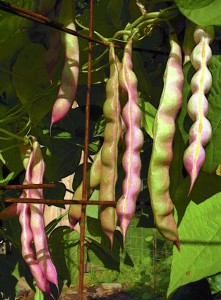Handing Off the Future: What Will Be Their Legacy?
 I lift two heavy buckets of green beans fresh from the garden up onto the kitchen sink. The knees of my old worn kakis are dark-wet from kneeling to pick while the long green pods still drip with morning’s brief shower. Soon I will hear the hiss and rattle of the canner, the seal of completion on our gardening committment, completed while the low sun still casts long shadows west across the pasture.
I lift two heavy buckets of green beans fresh from the garden up onto the kitchen sink. The knees of my old worn kakis are dark-wet from kneeling to pick while the long green pods still drip with morning’s brief shower. Soon I will hear the hiss and rattle of the canner, the seal of completion on our gardening committment, completed while the low sun still casts long shadows west across the pasture.
There is a deep satisfaction in the harvest. And so with my part done, I sit on the front porch swing with a sense of having finished a rural liturgy whose roots go back to April.
At satisfied moments like this when all seems well with the world, I think how fine it would be if I could only hand this day whole, this season, this time and place in my life like a runner’s baton to the next generation, our children and theirs, who might inherit this same soil from which they will gather beans, occasional moments of tranquility and their daily living; that they might know freedom from want and the pleasures of toil and of harvest from a landscape to which they truly and with gratitude belong: that is my hope.
I think a good bit more about what comes when I’m gone than I once did, here in the September my life.
But by virtue of our sheer numbers and especially by the richness of our living, I and my fellow guests on the planet just now will leave the accommodations in a significantly less durable state of order when we move on than when we moved in just after the second World War.
Those future generations I wistfully imagined knowing the world of their day from my front porch cannot simply by default expect to maintain the status quo, nor can they be satisfied to repeat the errors of omission or commission of our generation. They will have the new challenges of disrupted weather patterns and climate shift along with much, much more expensive energy costs in a very crowded world.
But they can still have good and honorable and meaningful lives. They can experience a good standard of living. But the standards, the scales by which we have measured the goodness of our lives, are going to have to be much different from the Baby Boomer expectations and entitlements that have been the norm for fifty years.
And strangely enough, as I consider what it might take to set things right, many of those new standards of how we must treat the earth and each other may be the old ones that guided our grandparents’ lives. Consider how you treat the least of your fellow men; bigger barns aren’t always better; don’t covet; it is more blessed to give; think of others more highly than yourselves; love your neighbor; be the servant of all; invest your talents, and be good stewards.
In the end, if we set our hearts and minds on the matter with courage and determination, if we can wed humility and wisdom with knowledge and ingenuity, maybe we can pass to our heirs a legacy of improving health for our air and soil, forests and oceans. And it is this that I hope my great grandchildren will some day pass along to their little ones here on Goose Creek.

